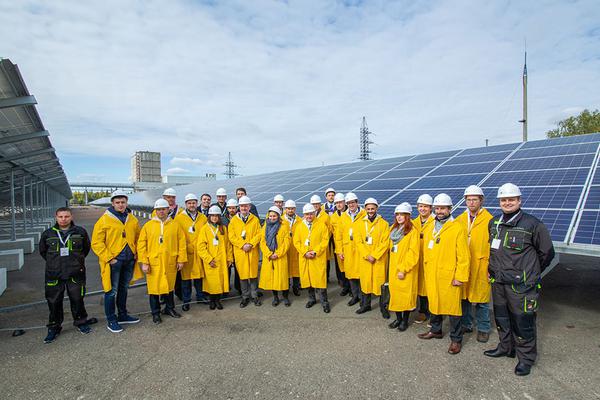【】
So much for Walmart's smiling greeters.
The big box chain built a giant self-serve kiosk for grocery pick-up in the parking lot of one of its Oklahoma superstores.
Customers simply order their food online, then, upon arriving at the store, type in a code on the side of the 20-by-80-foot building, which retrieves the contents of their shopping list within minutes. A big metal door slides open, and customers pull their groceries from a bin—no human interaction needed.
 Credit: walmart
Credit: walmartStore employees pack each order into a bin and load them into the contraption ahead of time. The storage bay is equipped with freezers and refrigeration and will eventually be accessible 24 hours a day.
 Employees load up the kiosk.Credit: walmart
Employees load up the kiosk.Credit: walmartThe massive vending machine is only there on a trial basis for the time being, but if all goes well, the company hopes to expand it to other locations. It's also been testing a much smaller in-store kiosk for non-grocery items.
The battle over the grocery market is one of the fiercest fronts in Walmart's eternal war with Amazon. The online shopping juggernaut already boasts a drive-through grocery pick-up in Seattle, pick-up lockers at hundreds of supermarkets, and its own cashier-less grocery store concept.
But Walmart's super-sized dispenser is the latest example of the company leveraging what it sees as its one major advantage over Amazon: its sprawling brick-and-mortar infrastructure and thousands of employees.
Amazon may have superior data troves and cutting edge online tech, but Walmart has hundreds of stores to serve online pick-up customers and employees who can do things like stock giant vending machines or deliver packages on their way home from work.
"We will compete with technology, but win with people," Walmart CEO Doug McMillon said to cheers at a corporate shareholders meeting in Arkansas last week.
Ironically, the future of grocery shopping doesn't look like it will involve much human interaction, no matter who wins.
Featured Video For You
Amazon just revolutionized the way you shop, again
TopicsAmazonInnovations
- 头条新闻
- 新闻排行榜








